Julian Bartlett, the new independent chair of Invesco’s UK fund board, has certainly amassed an enviable amount of experience and knowledge in his own kitbag during more than 30 years as a consultant to financial services companies.
In 2017 he decided it was time to pack up this bag and take it to the board room as a member, rather than adviser.
In those three decades – spent predominantly at Deloitte, Robson Rhodes and Grant Thornton – Bartlett spent a lot of time in board rooms, giving him plenty of ideas of both good and bad practice.
“My intention was never to see how many roles I could get,” he says. “It was all about: can I get things that work with my experience and my skills, that are interesting, and ideally in investment management? And I think I’ve achieved that.”
As well as chairing Invesco’s UK fund board since December 2020, Bartlett has been a non-executive director on the management company board of investment boutique Lindsell Train since last summer. He held a similar role at film financing specialist FFI Holdings until August 2019.
Perhaps the most useful of his current roles, at least when it came to onboarding for the Invesco fund board, was his position as NED and chair of the audit and risk committee on Invesco Pensions, Invesco’s UK life company.
“I already knew most of the people, so I already had a sense of the culture,” Bartlett explains. This meant he was quickly able to drill down into specific areas and get visibility of the final stages of Invesco’s first Assessment of Value (AoV) report.
The Journey or the Destination?
Invesco’s AoV document was published in July 2020. It had an immediate effect: more than 100,000 clients were switched to cheaper share classes after regulatory changes were made to permit this, and alterations were made to strategies, processes and teams affecting 11 of its 54 funds[1].
For Bartlett, though, many of these changes – and those taking place at other asset management firms as a result of the AoV process – were inevitable.
“The actions being taken as a consequence of people going through the assessment of value are probably actions that would have happened anyway,” he says. “But it’s been a fantastic process for creating further visibility on those things.
“The process that people have to go through in order to produce the external outcomes is incredibly instructive, and management information is changing as a consequence of this process. What did you use to, for instance, look at performance? Or look at profitability? Some of that has changed as a result of this process.”
It is that element – the process – that Bartlett believes is the most important part of the whole AoV journey, even more so than the external visibility of the report. If the Financial Conduct Authority wants costs to come down, they will, he believes, but as much to do with the natural regulation within the fund marketplace.
“I think it [AoV] will mean perhaps firms reflecting sooner on the continued relevance of a strategy: Is it doing what was hoped?”
Into Year Two
That all-important process is already under way for the second year’s AoV report, this time with Bartlett installed as the chair. However, while Invesco’s debut AoV resulted in comparatively more action than many other firms, he says the board’s longer-term work will be on a gradual evolution of the UK strategy, as opposed to fundamental change.
Year two for will look “very, very similar” to year one, he explains, in part due to the lack of formal feedback from the Financial Conduct Authority. While boards can learn from their first efforts and those of their peers, 2021 will not be the time to change tack significantly.
“Once we’ve got more specific regulatory feedback then some firms may need to change what they’ve done,” he says. “There also may be a bit more commonality in the approaches that people start to take.
“While there has been some generic regulatory feedback, I don’t think that many firms have been grilled on their approach yet. If you’ve done a good job in year one, I suspect that year two will be about fine tuning.”
However big or small the second-year changes might be, Bartlett is keen to highlight the positive culture on his board and beyond. He explains: “I have found that Invesco’s management is very receptive to the input from non-execs. There is both a ‘speak up’ culture, but also listening culture. If you raise a concern, it’s thought about and addressed.”
Words of Wisdom
Bartlett also underscores the importance of a listening culture, both for boards and for individual iNEDs. “Active listening, too, in terms of probing and properly understanding – not just hearing what has been said.”
Almost as important is an iNED’s support network of peers. The iNED role on fund boards is still a relatively new concept and will bring up many challenges for individuals, so it is important they have people with which they can share experiences and advice.
“There are ways to have a conversation that don’t compromise confidentiality,” Bartlett adds. “Maybe talk in generic terms about where people have dealt with, say, a conflict, or a split on the board. You’ve always got to have someone to talk to. If it gets serious, then you talk to professional advisers, but usually it’s the little stuff that you might just want to reflect on.”
As a newly appointed independent chair, Bartlett also has advice for boards considering who should hold the top job. An independent chair can “bring an enhanced perspective” to the role and ensure the promotion of a focus on the customer. This is much easier to do when you are outside of day-to-day corporate management, he argues.
“Management can be very good at understanding what they are trying to achieve for customers and executing on it,” he adds. “But it’s easier for somebody with a little bit more thinking time and who is a little bit more detached to perhaps spot where that’s not being sufficiently baked into the process.”
Now that his feet are under the (virtual) board table at Invesco, Bartlett is keen to maintain the variety and challenge he has thrived on throughout his professional career.
“There’s room for another role at the moment in my mind,” he says of his personal plans. “I have a very deep background in investment trusts. There may be an opportunity there, and it fits very well with the roles I already have and the background and experience I have.”
It seems that kitbag will continue to serve Julian Bartlett and his boards well.
Quickfire Questions:
- School: Eltham College
- University: University of York
- Home: Eltham, south-east London
- Your first board role (exec or non-exec): St Mary’s (community charity)
- Number of current board roles: 3 commercial, 1 charity
- Current car: Hyundai Ioniq Hybrid
- Favourite book: The Busy Mum’s Guide to Murder
- Favourite film: Groundhog Day (try, try and try again)
- Music choice: Schubert’s String Quintet in C
- Top gadget: Fitbit
- Your preferred charity, or equivalent: WWF and Sense
- Your next holiday: It won’t be next, but I really missed the snow this year.



